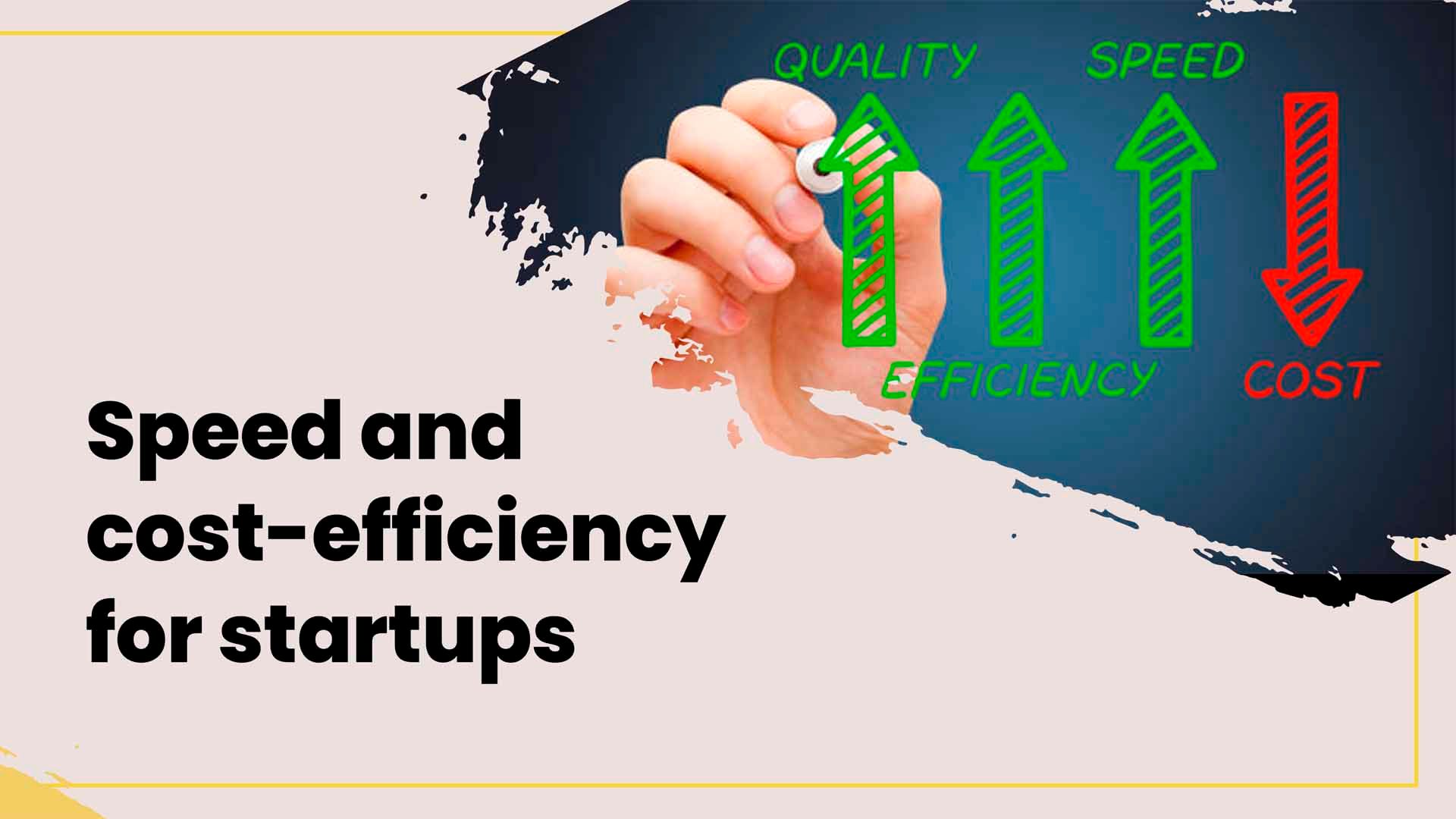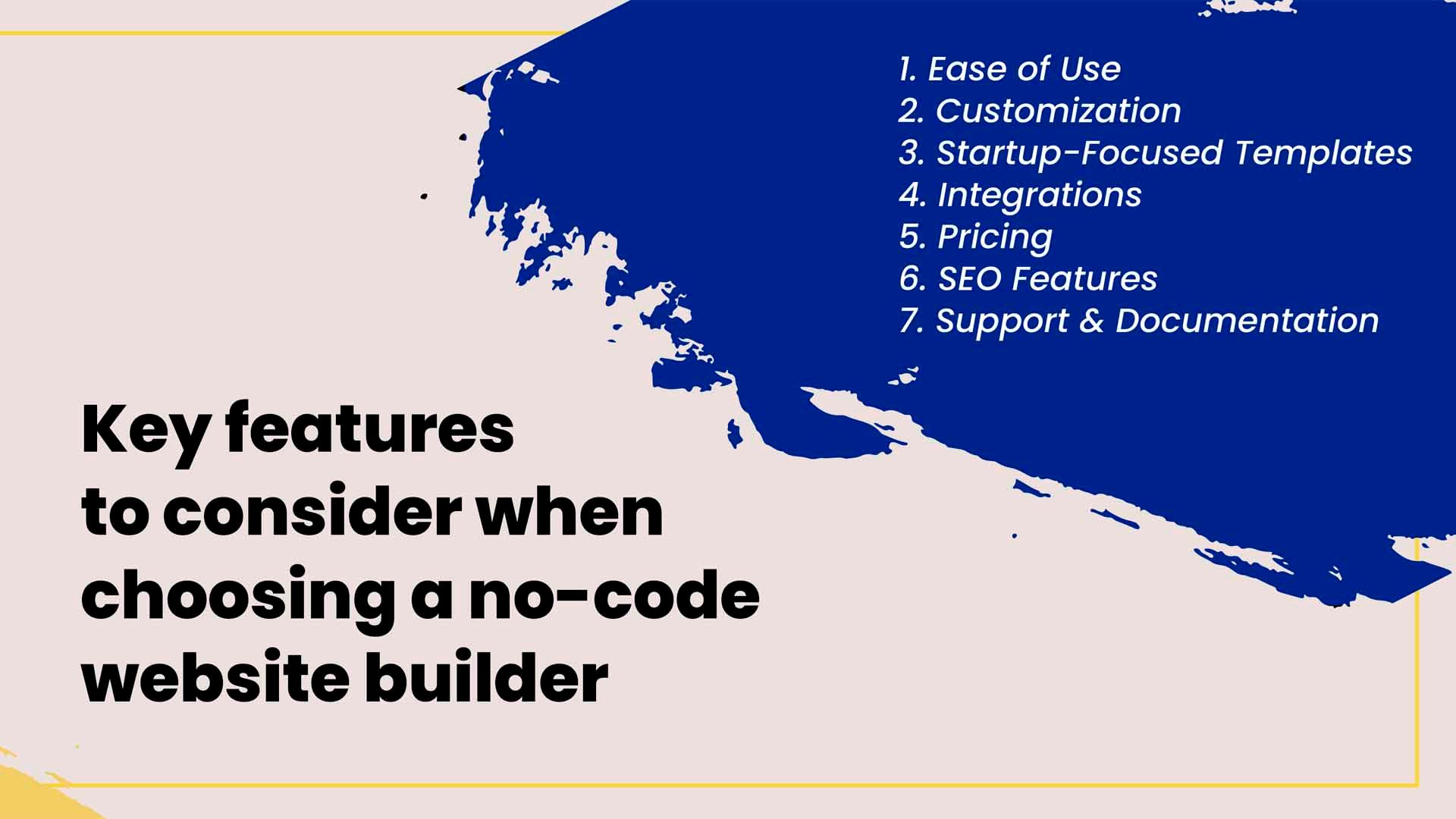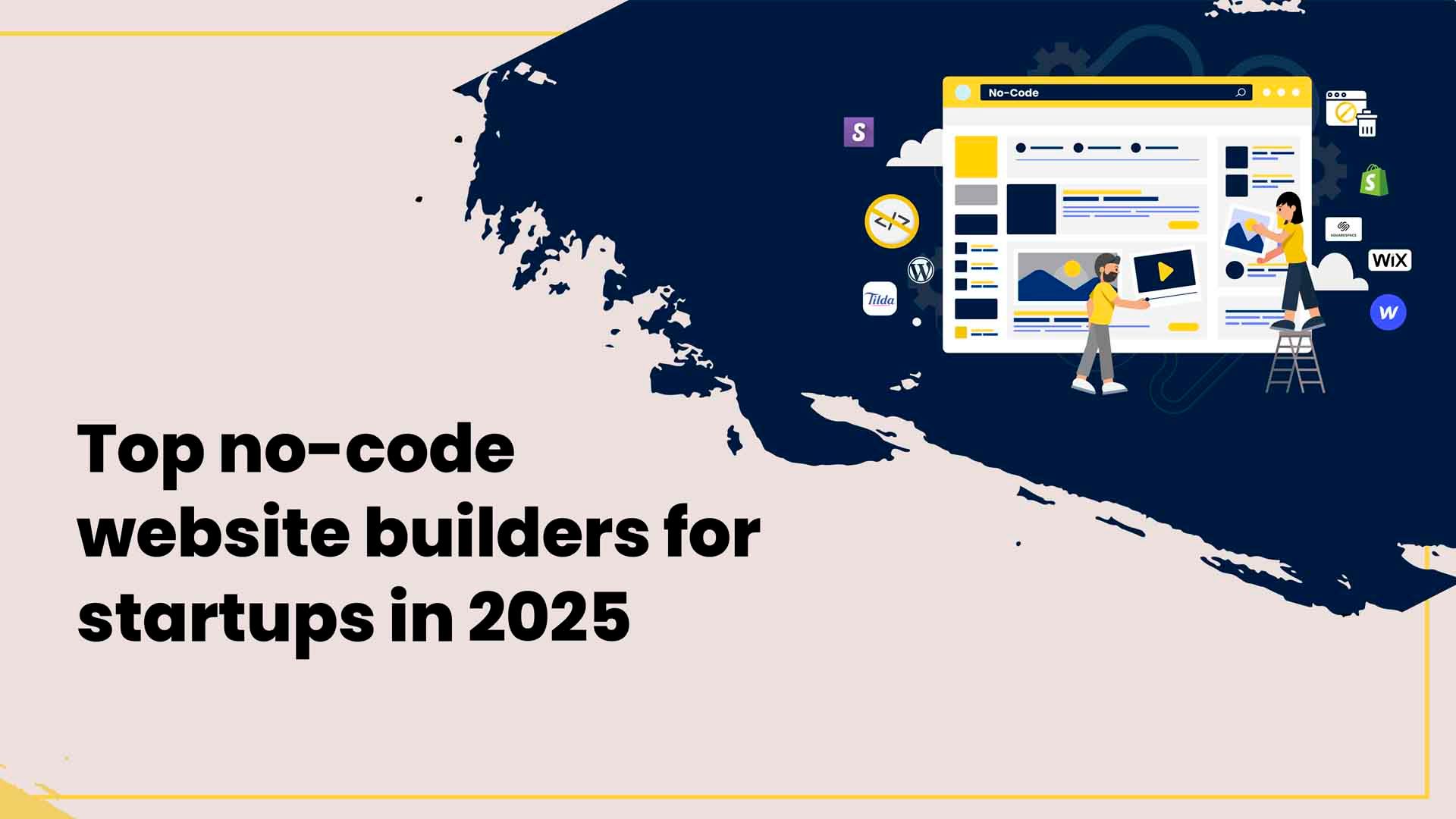By Sara Delgado - Senior Editor | Last updated: July 3, 2025 | 14 Min Read

In 2025, no-code website builders have become a game-changer for startups, enabling them to launch faster, reduce costs, and bring their ideas to life with minimal technical expertise. These platforms are empowering entrepreneurs to build fully functional websites without the need for developers, making it easier than ever to get a product or service online quickly.
Choosing the right website builder is crucial for a startup. The right platform allows for faster iterations, better engagement, and quicker feedback from users, all of which are vital in the early stages of a business. By using no-code tools, startups can create prototypes, test concepts, and launch fully functioning websites in no time.
This article will explore why no-code website builders are a game-changer for startups, what features to prioritize when selecting a platform, and provide a comprehensive comparison of the top tools available in 2025. Whether you’re creating an MVP or a fully developed site, we’ll help you choose the right builder for your startup’s needs.
In 2025, no-code website builders are rapidly transforming how startups approach digital presence. From launching MVPs to scaling operations, these platforms offer a level of flexibility and speed that traditional development simply can't match.
Hiring a team of developers can be costly for startups with limited budgets and tight timelines. No-code website builders eliminate the need for professional coding skills, enabling startups to launch websites without code.
These tools reduce time-to-market drastically, allowing founders to build and deploy fully functional websites in hours or days instead of weeks. The result? Faster launches and significant cost savings.
No-code tools empower startups to build MVPs quickly and test ideas with real users. Founders can iterate based on feedback without relying on external developers. This speed is crucial for early-stage startups looking to quickly refine their value proposition and gain traction.
Most no-code platforms come with intuitive, drag-and-drop interfaces. Even non-technical founders can easily create professional-looking websites, giving them full creative control. This democratization of web design allows every team member to contribute to the product’s evolution.
Modern no-code website builders integrate seamlessly with tools like Zapier, Airtable, and Stripe. This ensures that startups can scale their functionality over time without rebuilding from scratch. Whether it’s automating workflows or accepting payments, these platforms are built for growth.
No-code website builders are ideal for launching MVPs. Startups can validate demand, collect user feedback, and pivot quickly. With low risk and high adaptability, they offer a strategic advantage in competitive markets.
With so many no-code website builders on the market, choosing the right one can be overwhelming. Here are the website builder features startups need to make the smartest choice.
The best no-code platforms offer an intuitive, drag-and-drop interface that lets anyone design a site without touching code. This is especially important for non-technical founders who need to move fast.
A startup’s website should reflect its unique brand. Look for a platform that allows high design flexibility—custom fonts, colors, layouts, and even advanced animations. The best no-code website builder for startups should let you stand out, not blend in.
Time-saving templates built for product launches, SaaS pages, service landing pages, or waitlists are a huge plus. These can cut design time in half and help you go live faster.
Whether it's marketing automation, CRM, or payments, your builder should connect with tools you already use—like Zapier, Stripe, ConvertKit, Calendly, Airtable, and HubSpot. Robust integrations turn your site into a central hub for growth.
Look for affordability and flexible plans that scale with your business. Many no-code tools offer free tiers or budget-friendly starter plans, making them accessible even at the idea stage.
If you want to attract organic traffic, your site needs to be search engine-friendly. Built-in SEO tools (like custom meta tags, alt texts, fast loading speeds, and clean URLs) are essential for visibility.
Startups need reliable support. Whether it’s live chat, tutorials, or community forums, choose a platform with solid documentation and fast, helpful assistance.
Whether you're launching an MVP, building a landing page, or creating a scalable startup website, these top no-code website builders are leading the charge in 2025. Let’s explore the best tools available.
Webflow is a powerful no-code platform that allows startups to build fully customizable, high-performance websites without writing a line of code. It’s especially popular among design-focused teams and agencies.
Pros:
Cons:
Design-driven startups, agencies, landing pages, SEO-focused projects
Webflow offers unmatched design control and performance, making it the best no-code website builder for startups that want to build premium web experiences with scalability in mind.
Carrd is a lightweight, ultra-simple builder perfect for one-page websites. It’s ideal for quick MVPs, validation landing pages, and pre-launch waitlists.
Pros:
Cons:
MVP validation, lead capture, waitlists, coming-soon pages
Carrd allows you to launch a website without code in minutes. Ideal for early-stage founders on a tight budget.
Dorik offers beautiful, clean templates with a modern UI and fast load times. It supports multi-page sites, CMS functionality, and white-label options.
Pros:
Cons:
Startup portfolios, product sites, blogs, agency landing pages
Dorik provides great value and functionality, perfect for bootstrapped founders building modern, fast websites.
Softr lets you build full-fledged web apps by connecting to Airtable or Google Sheets. It's designed for startups creating internal tools, MVPs, and SaaS dashboards.
Pros:
Cons:
Client portals, internal tools, SaaS MVPs
Free plan available
Pro plans from $49/month
Softr helps you build MVP no-code products quickly—perfect for SaaS founders and product-led teams.
Typedream offers a Notion-style interface for building beautiful startup websites. It’s intuitive, fast, and ideal for non-technical founders.
Pros:
Cons:
Startup homepages, personal sites, pitch pages
Typedream is perfect for startups that want a modern site without learning complex tools. Especially great for founders who already use Notion.
Wix Studio is the upgraded version of classic Wix, built specifically for teams and startups that need advanced control and collaboration.
Pros:
Cons:
Multi-page startup websites, agency collaboration, growing businesses
Wix Studio provides robust tools for growth-oriented startups that want flexibility and advanced design without code.
Framer is a modern, designer-friendly builder with live prototyping and high-end visuals. It’s ideal for startups that prioritize UI/UX and fast iterations.
Pros:
Cons:
Landing pages, product sites, design portfolios
Framer is a go-to option for startups that want to stand out visually and iterate quickly.
Unicorn Platform is built specifically for startups and SaaS founders. It features prebuilt blocks tailored to startup needs.
Pros:
Cons:
Startup landing pages, product pages, SaaS homepages
Unicorn Platform is tailored to founders—it’s optimized, simple, and helps get you online quickly with a startup-first mindset.
Tilda is a visual, storytelling-focused platform that excels at presenting long-form content, making it ideal for brand-heavy startups.
Pros:
Cons:
Brand storytelling, blogs, and landing pages with visual appeal
Tilda helps startups tell their story beautifully, blending design and content like no other no-code website builder.
Leadpages is built for one purpose: conversions. It's a top choice for building high-performing landing pages with lead forms and A/B testing.
Pros:
Cons:
Lead generation, marketing campaigns, pre-launch product pages
If your goal is capturing leads, growing a waitlist, or testing offers, Leadpages is the best no-code tool for launch-focused startups.
Startups in 2025 are embracing no-code platforms to quickly get online and start engaging users. Here are some of the most common and impactful use cases:
Whether you're looking to build a SaaS site no code, publish MVP landing pages, or create startup websites without coding, there's a no-code builder to match your needs.
When selecting the best no-code website builder for your startup, context is everything. Here’s how to decide:
Choosing the best no-code site builder for startups comes down to balancing ease of use, features, and future scalability.
To maximize impact from your no-code platform:
No-code website builders are changing the startup game in 2025. They empower founders to move quickly, build professionally, and validate ideas without hiring a full dev team.
From MVP landing pages to SaaS marketing websites, these tools let you ship fast, test often, and scale efficiently.
There’s no one-size-fits-all. The best no-code website builder for your startup depends on your team, goals, and stage of growth. But one thing’s certain—no-code is here to stay.
Explore a few of the platforms above, test what feels right, and launch your next big idea without touching a line of code.
A no-code website builder is a platform that allows users to create fully functional websites without writing any code. They use drag-and-drop interfaces, pre-built templates, and integrations to simplify the process.
Absolutely. Many successful startups use no-code builders to launch MVPs, marketing sites, or even production apps. They’re efficient, scalable, and ideal for lean teams.
Webflow, Softr, and Unicorn Platform are top choices for SaaS startups due to their flexibility, integrations, and scalability.
Yes. Most modern no-code builders automatically create responsive websites that look great on all devices.
SEO capabilities vary by platform. Tools like Webflow and Framer offer strong SEO controls, while others may require more manual work. Always choose a builder with customizable metadata, sitemaps, and clean URLs for optimal SEO performance.
Get the latest updates from the world of science and technology delivered straight to your inbox.

Sara Delgado is a freelance writer, editor, and translator specializing in culture and fashion content with experience across digital, print, and social media based in Madrid, Spain. She was previously the online editor of Schön! Magazine and is now a contributing editor-at-large at Teen Vogue. She has written for Dazed, The Recording Academy, NME, Nylon, BRICK, and many more.
Subscribe to our newsletter to get the latest updates directly in your inbox.

Discover the best budget smartphones for entrepreneurs under $500. Compare top-performing mobile phones for business productivity.

July 10, 2025
Find the best laptops for software developers in 2025. Compare top picks and boost your coding performance today.
14/07/2025
How AI impacts phone battery life in 2025: Explore how smart power management and adaptive AI features optimize energy use and extend battery life.
14/07/2025
Start your smart home journey with the perfect smart home starter kit. Upgrade your lifestyle with essential smart devices today.
15/07/2025
Boost productivity with top Project Management Platforms for Remote Teams. Discover tools to streamline tasks and collaborate better.
16/07/2025